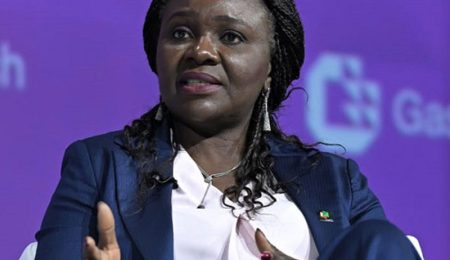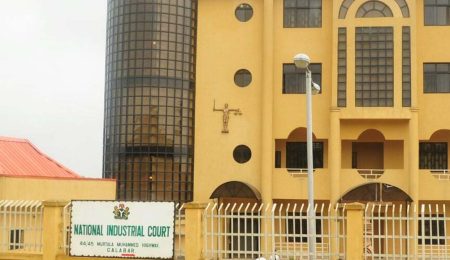In a major move to tackle Nigeria’s growing infrastructure deficit and pension liabilities, the Senate on Tuesday approved President Bola Tinubu’s comprehensive borrowing plan for the 2025-2026 fiscal period.
The plan included a combined external loan package of $21.5 billion, €2.2 billion, and 15 billion Japanese Yen, as well as a €65 million grant.
Additionally, the Senate endorsed a N757.98 billion domestic bond issuance to settle outstanding liabilities under the Contributory Pension Scheme (CPS), some of which date back to December 2023.
The red chamber said the approval was to bring relief to thousands of retirees affected by payment delays.
The Senate maintained that the foreign borrowing plan and domestic bond issuance were key components of the 2025–2026 Medium-Term Expenditure Framework (MTEF) and Fiscal Strategy Paper (FSP), documents that outline Nigeria’s fiscal direction for the coming years.
Chairman of the Senate Committee on Local and Foreign Debts, Senator Aliyu Wamakko, presented the report that underpinned the approval.
Wamakko confirmed that the proposed external loans were mostly concessional, offered at low interest rates and long repayment terms, designed to support the country’s critical sectors without overly burdening public finances.
Tinubu, in his correspondence to the National Assembly, described the loans as essential for driving growth across vital sectors, including power, transport, health, education, water, and agriculture.
He highlighted the urgency of addressing the country’s massive infrastructure shortfall, especially following the removal of fuel subsidies, which had strained government revenues and increased pressure on citizens.
“In light of the significant infrastructure deficit in the country and the paucity of financial resources needed to address this gap amid declining domestic demand, it has become essential to pursue prudent economic borrowing to close the financial shortfall,” Tinubu stated.
A standout element of the approved measures is the new $2 billion Foreign Currency Denominated Issuance Programme in the domestic debt market.
Enabled by Presidential Executive Order No. 16 of 2023, the programme is designed to allow the government to raise foreign currency from within Nigeria rather than from international creditors.
According to the Senate, this initiative can deepen the domestic capital market, attract foreign investors, and reduce pressure on Nigeria’s foreign reserves.
The funds from the programme will be ring-fenced and invested in strategic projects, such as energy, transportation, and digital infrastructure.
The initiative aims to tap into the vast foreign currency liquidity within the country, from private sector players, diaspora remittances, and foreign businesses operating in Nigeria, while offering a return on investment to participants.
“The initiative provides an alternative to external borrowing, reduces pressure on foreign reserves, and allows investors to earn returns on their dollar holdings while contributing to national development,” the senate committee stated.
Equally critical is the Senate’s approval of Tinubu’s request to issue nearly N758 billion in bonds to clear pension arrears under the CPS.
The federal government had struggled to fulfil its pension obligations due to persistent revenue shortfalls, leading to widespread hardship among retirees.
The move, which aligns with the provisions of the Pension Reform Act (PRA) of 2014, is intended to restore public trust in Nigeria’s pension system.
According to Tinubu’s letter to the Senate, the Federal Executive Council (FEC) had already approved the bond issuance in February 2025.
“The bond issuance will cushion the hardship of retirees, restore trust in the pension system, and stimulate liquidity in the domestic market,” the senate committee report stated.
The president stressed that the measure would significantly improve the welfare of retirees by enabling them to meet basic needs, access healthcare, and avoid unnecessary hardship or premature deaths due to delayed entitlements.
Despite concerns about rising public debt, lawmakers supporting the plan argued that the long-term economic benefits, such as increased infrastructure, job creation, and macroeconomic stability, outweighed the immediate costs.
The combined funding strategies were expected to generate jobs, improve access to education and healthcare, bolster food and water security, and enhance public service delivery across Nigeria.
While critics may raise concerns about growing debt, the Senate insisted that the approved loans, grants, and bonds represented a strategic response to the country’s pressing fiscal and development challenges.
The Senate stated that its endorsement of Tinubu’s borrowing plan marked a significant fiscal shift, one aimed at stabilising the economy, funding vital infrastructure, and delivering overdue justice to pensioners across the country.
Sunday Aborisade
Follow us on:


